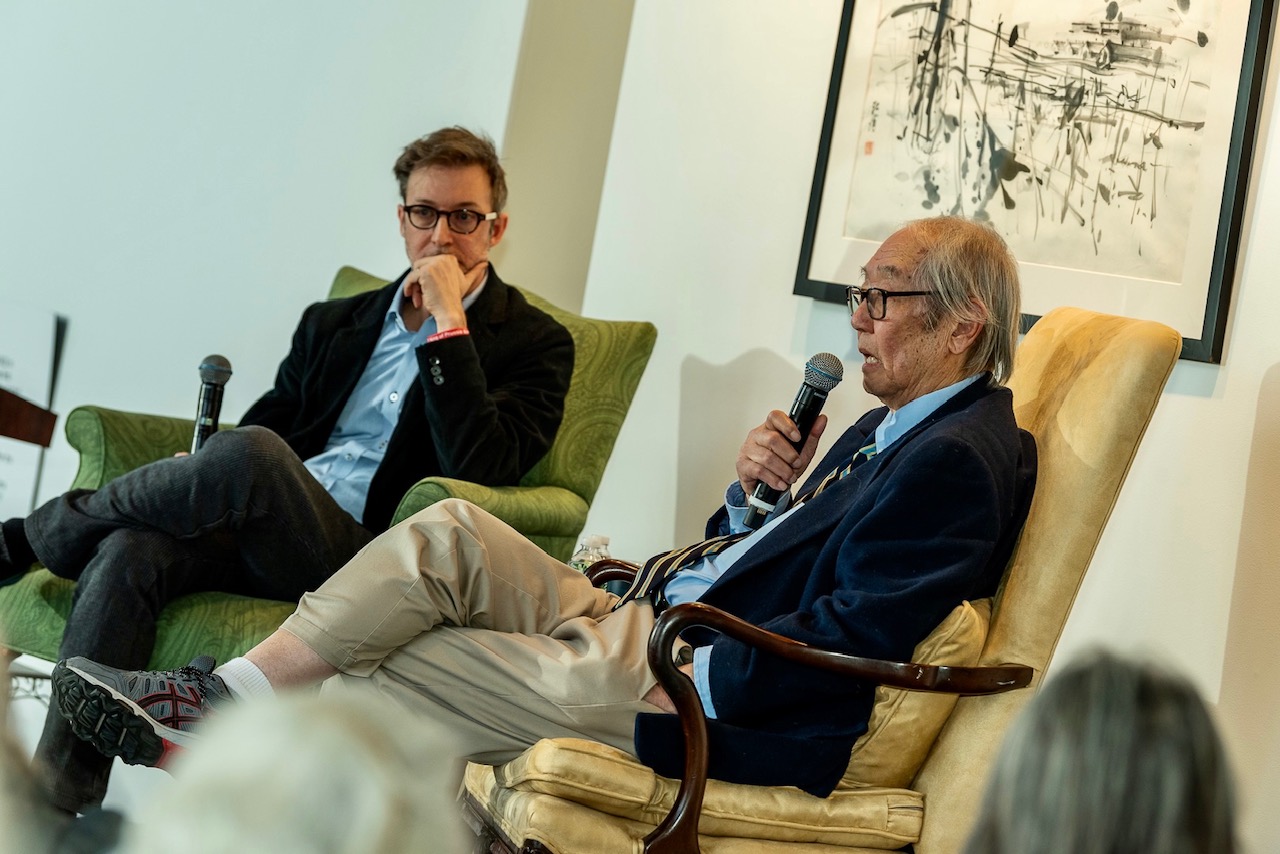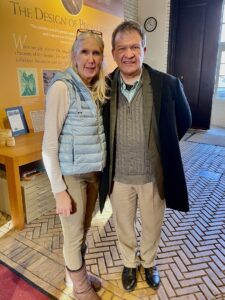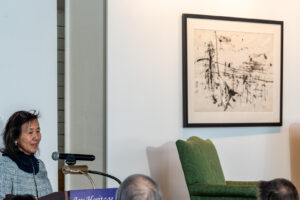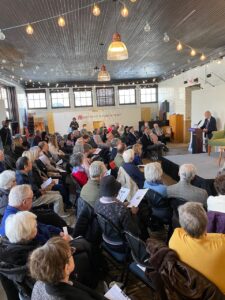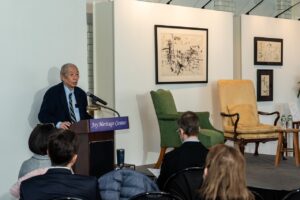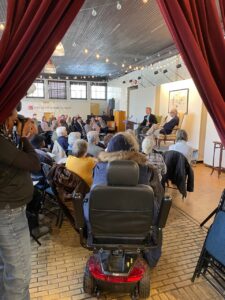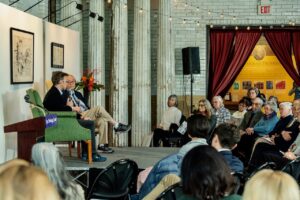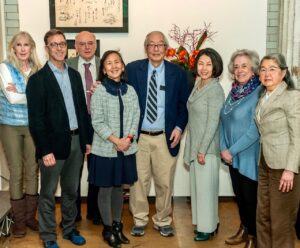
This year’s Presidents’ Day Weekend coincided with a Day of Remembrance of Japanese American Incarceration, the anniversary of Franklin Delano Roosevelt‘s signing of Executive Order 9066 on February 19, 1942. President Roosevelt’s action resulted in the traumatic detention of 120,000 Japanese Americans at 10 desolate camps during World War II. Two thirds of those imprisoned were American citizens. To better illuminate this tragic chapter in American history, Jay Heritage Center (JHC) and Japan Society of Greater Fairfield County (JSGFC) presented a discussion called “Why did the Internment Camps Happen?” with two noted authors, Grant Ujifusa and Kermit Roosevelt III.
Following a welcome from JHC President Suzanne Clary, Jackie Alexander, JSGFC President, whose grandfather came to America in the 1890s, addressed the audience. She shared how in 2022, JSGFC first donated 22 cherry trees as a symbol of friendship to the public through JHC, but soon discovered an even greater shared mission of educating people about the complicated experiences of immigrants coming to this land of opportunity. The two groups subsequently embarked on several program initiatives. This included a spectacular, public Ikebana exhibit in September 2023 and for Veterans Day, talks about the resilience of Sumi-e artist Koho Yamamoto and Vietnam veteran Takeshi “Tak” Furumoto each of whom was unjustly interned with their families following the bombing of Pearl Harbor. Yamamoto, only 20 when she was imprisoned, studied under Chiura Obata. She grew up to become a celebrated teacher and exhibitor in her own right with works in the collection of the Smithsonian. Original, rarely seen paintings by both Yamamoto and Obata were on view besides Alexander while she spoke.
Yoshie Ito, Director of JSFC, then introduced the keynote speaker Grant Ujifusa, a third-generation Japanese American who grew up in northern Wyoming on a vast farm and was the star quarterback of his high school football team. After graduating from Harvard with honors in 1965, he became an editor for Houghton Mifflin and Random House and helped co-found the Almanac of American Politics, a volume called “the bible of politics” by journalists George Will and Tim Russert. “Everyone who was featured in that book would pick up the phone if Grant was calling,” explained Ito. This open line of communication became a useful tool for Ujifusa when he became the Redress Chair of the Japanese American Citizens League in the 1980s. Ujifusa worked tirelessly to help build bipartisan support for reparations and was ultimately instrumental in reversing President Ronald Reagan‘s opposition to redress for Japanese Americans.
In his talk, Ujifusa explained why he thought FDR, perhaps the most liberal president of the 20th century issued Executive Order 9066 and why Reagan, perhaps the most conservative president of the 20th century signed the Japanese American Redress Bill (HR 442) on August 10, 1988. Ujifusa attributed Roosevelt’s unconscionable policy to “race prejudice, war hysteria and the failure of political leadership.”
Grant recounted the efforts of many players besides himself in building a bipartisan coalition of support for the Civil Rights bill including US Senator “Sparky” Matsunaga but allowed how ultimately it was Reagan’s admiration of the heroism of a young Japanese American soldier, Kaz Masuda, who was killed in action in 1944, that swayed him to sign HR 442. Because of his race, there had been opposition about Masuda’s remains being buried in his home town of Fountain Valley, California. General “Vinegar” Joe Stilwell intervened arranging for Masuda to receive the Distinguished Service Cross posthumously in 1945. Republican Governor Tom Kean of New Jersey helped Ujifusa remind Reagan of a speech he had delivered at that very same ceremony with Masuda’s family present. Reagan was a young actor and Army Captain at the time. At the solemn event Reagan said “The blood that has soaked into the sand is all one color. America stands unique in the world, the only country not founded on race, but on a way – an ideal. Not in spite of, but because of our polyglot background, we have had all the strength in the world. That is the American way.” After being reminded of that day, President Reagan signed the bill.
After Ujifusa’s keynote, Penn Carey Law Professor Kim Roosevelt III, an expert in constitutional law, spoke further with Ujifusa and they discussed the controversial 1944 Supreme Court decision in Korematsu v. United States. That case upheld the constitutionality of the internment camps and has since been rebuked and overturned for reasons of its violation of civil rights.
Photos by JHC and Kim Crichlow
